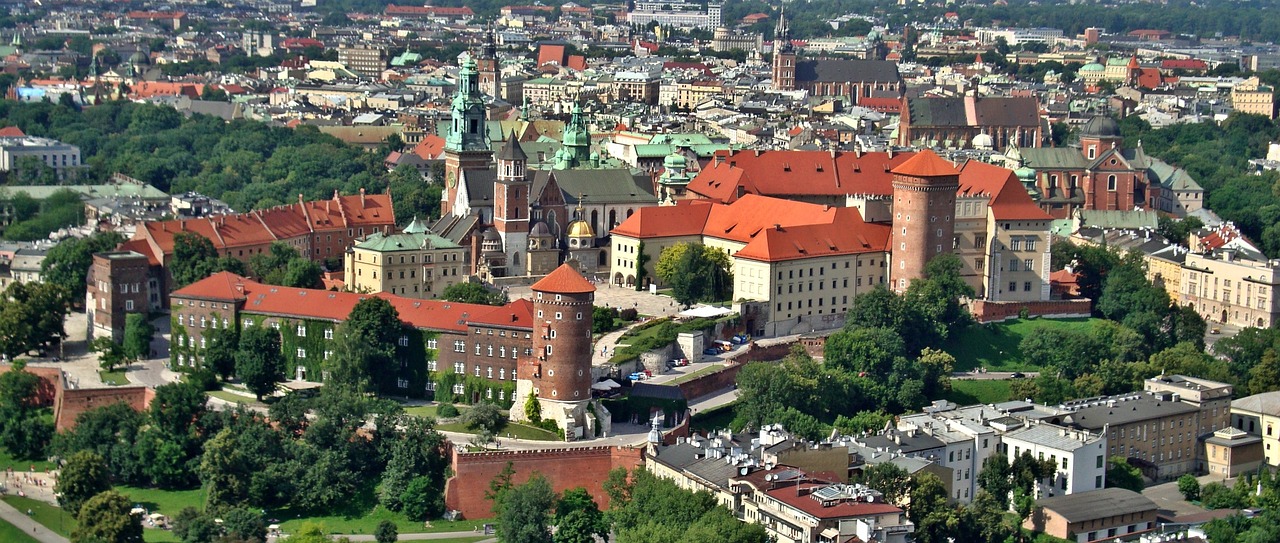Poland Video
Visa and Stay Regulations for Digital Nomads in Poland
Poland is becoming an increasingly popular destination for digital nomads seeking a vibrant and affordable place to live and work. As a digital nomad, it’s important to understand the visa and stay regulations in Poland to ensure a smooth and legal stay. This article provides a comprehensive guide to help you navigate the visa and stay requirements for digital nomads in Poland.
1. Schengen Visa
To enter Poland as a digital nomad, you will need to obtain a Schengen visa. The Schengen visa allows you to stay in Poland and other Schengen member countries for up to 90 days within a 180-day period. This visa is suitable for short-term stays or for digital nomads who frequently travel between Schengen countries.
- Apply in Advance: It is recommended to apply for the Schengen visa at the Polish embassy or consulate in your home country or country of residence before your trip.
- Required Documents: The required documents for a Schengen visa application typically include a valid passport, proof of travel insurance, flight itinerary, accommodation details, and proof of financial means to cover your stay.
- Visa Extension: If you plan to stay in Poland for longer than 90 days, you may need to apply for a national visa or a residence permit. It is advisable to consult the Polish embassy or consulate for specific requirements and procedures.
2. National Visa
A national visa allows digital nomads to stay in Poland for longer than 90 days. It is suitable for those who plan to work or study in Poland for an extended period. The national visa can be obtained from the Polish embassy or consulate in your home country or country of residence.
- Types of National Visas: Poland offers various types of national visas, including work visas, study visas, and business visas. Choose the visa type that best suits your purpose of stay.
- Application Process: The application process for a national visa typically involves submitting the required documents, attending an interview, and paying the visa fee. The specific requirements may vary depending on the type of visa you are applying for.
- Visa Extension: If you wish to extend your stay in Poland beyond the validity of your national visa, you will need to apply for a residence permit. The application process for a residence permit can be initiated while you are still in Poland.
3. Residence Permit
A residence permit allows digital nomads to live and work in Poland for an extended period. It is required if you plan to stay in Poland for more than 90 days within a 180-day period or if you wish to work legally in the country.
- Types of Residence Permits: Poland offers various types of residence permits, including the temporary residence permit, the EU long-term residence permit, and the permanent residence permit. The type of permit you need will depend on your purpose of stay and the duration of your intended stay.
- Application Process: The application process for a residence permit involves submitting the necessary documents, attending an interview, and paying the required fees. The specific requirements may vary depending on the type of residence permit you are applying for.
- Renewal and Extension: Residence permits in Poland are usually valid for a specific period and can be renewed or extended if necessary. It is important to start the renewal or extension process well in advance of the permit’s expiration date.
4. Registration of Stay
Regardless of the duration of your stay in Poland, all foreigners are required to register their stay with the local authorities within 90 days of arrival. This process is known as “registration of stay” or “temporary residence registration.”
- Procedure: To register your stay, you need to visit the local Voivodeship Office (Urząd Wojewódzki) or the Municipal Office (Urząd Miasta) responsible for your place of residence. You will be required to complete an application form and provide the necessary supporting documents.
- Required Documents: The documents required for the registration of stay may include your passport, visa or residence permit, proof of accommodation, and proof of financial means to support your stay in Poland.
- Consequences of Non-Registration: Failure to register your stay within the specified timeframe may result in fines or other legal consequences. It is crucial to comply with this requirement to avoid any issues during your stay in Poland.
5. Tax Obligations
As a digital nomad working in Poland, you may have tax obligations depending on the nature and duration of your work. It is essential to understand the tax regulations and fulfill your tax obligations to avoid any legal issues.
- Tax Residency: If you spend more than 183 days in Poland during a tax year or have your center of vital interests in Poland, you may be considered a tax resident and subject to Polish taxation on your worldwide income.
- Tax Identification Number (NIP): If you plan to work as a freelancer or run your own business in Poland, you will need to obtain a Tax Identification Number (NIP). This number is used for tax and social security purposes.
- Consult a Tax Advisor: To ensure compliance with Polish tax regulations, it is advisable to consult a tax advisor or accountant who specializes in international taxation or works with digital nomads.
6. Healthcare
Poland has a well-developed healthcare system, and as a digital nomad, it is important to have appropriate health insurance coverage during your stay. While Poland provides healthcare services to its residents, it is recommended to have comprehensive travel insurance that covers medical expenses and emergency medical evacuation.
- European Health Insurance Card (EHIC): If you are a citizen of an EU/EEA country, you can apply for the European Health Insurance Card (EHIC) before traveling to Poland. The EHIC provides access to necessary healthcare services at the same cost as Polish residents.
- Private Health Insurance: It is advisable to have private health insurance that covers a wide range of medical services, including emergency medical treatment, hospitalization, and repatriation.
- Pharmacies and Clinics: Poland has pharmacies and private clinics where you can seek medical assistance. It is recommended to carry a list of essential medications and contact details of healthcare providers in case of emergencies.
Poland Image 1:

7. Cost of Living
Poland offers a relatively affordable cost of living compared to other European countries. The cost of accommodation, transportation, food, and entertainment in Poland is generally lower, making it an attractive destination for digital nomads.
- Accommodation: The cost of accommodation in Poland varies depending on the location and type of housing. Renting an apartment in major cities like Warsaw, Krakow, or Wroclaw can be more expensive compared to smaller towns.
- Transportation: Public transportation in Poland is efficient and reasonably priced. Buses, trams, and trains connect major cities and towns, making it convenient for digital nomads to explore the country.
- Food and Dining: Eating out in Poland is affordable, with a range of options from local street food to international cuisine. Grocery shopping is also reasonably priced, allowing you to cook your meals if you prefer.
8. Co-Working Spaces
Poland has a growing co-working space scene, providing digital nomads with flexible work environments and networking opportunities. Co-working spaces offer amenities such as high-speed internet, meeting rooms, and a collaborative community of like-minded professionals.
- Major Cities: Warsaw, Krakow, and Wroclaw are known for their vibrant co-working scenes, with numerous spaces catering to the needs of digital nomads.
- Membership Options: Co-working spaces in Poland offer various membership options, including daily passes, monthly subscriptions, and dedicated desks. Choose a membership that suits your working style and duration of stay.
- Community Events: Many co-working spaces organize community events, workshops, and networking sessions to foster collaboration and professional growth.
Poland Image 2:

9. Safety and Security
Poland is generally a safe country for digital nomads, with low crime rates and a stable political environment. However, it is always important to take precautions and practice common-sense safety measures.
- Personal Belongings: Keep your personal belongings secure and be cautious of pickpocketing, especially in crowded tourist areas.
- Emergency Services: Familiarize yourself with the local emergency services contact numbers and the location of the nearest police stations and hospitals.
- Travel Insurance: Ensure you have comprehensive travel insurance that covers theft, loss, and medical emergencies.
10. Cultural Etiquette
Poland has its own unique cultural etiquette, and as a digital nomad, it is important to respect and abide by the local customs and traditions.
- Greetings: When meeting someone for the first time, it is customary to shake hands and maintain eye contact. Address people using their titles and surnames unless invited to use their first names.
- Punctuality: Punctuality is highly valued in Polish culture. Arrive on time for meetings and appointments.
- Table Manners: Dining etiquette in Poland is formal, with the knife in the right hand and the fork in the left hand. Keep your hands visible on the table, avoid resting your elbows on the table, and wait for the host to start eating before you begin.
Poland Image 3:

11. Internet Connectivity
Poland has a reliable and fast internet infrastructure, making it an ideal destination for digital nomads who rely on a stable internet connection for remote work.
- Wi-Fi: Most cafes, restaurants, and co-working spaces in Poland offer free Wi-Fi access. You can also find internet hotspots in public areas and libraries.
- Mobile Data: Polish mobile network operators provide affordable and high-speed data plans for smartphones and portable Wi-Fi devices.
- Internet Providers: If you plan to stay in Poland for an extended period, you can subscribe to a fixed-line internet service provided by companies such as Orange, UPC, or Vectra.
12. Resources
To further assist you in understanding the visa and stay regulations for digital nomads in Poland, here are some useful resources:
- Polish Ministry of Foreign Affairs: Official website of the Polish Ministry of Foreign Affairs provides information on visa requirements, consular services, and contact details of Polish embassies and consulates.
- Poland Travel: The official tourism website of Poland offers insights into the country’s attractions, transportation, and practical information for visitors.
- Expats Poland: An online community and resource hub for expats and digital nomads living in Poland, providing valuable information on various aspects of life in Poland.
References
– Ministry of Foreign Affairs of the Republic of Poland: www.gov.pl
– Poland Travel: www.poland.travel
– Expats Poland: www.expatspoland.com
Please note that visa and stay regulations may change over time, and it is always advisable to consult official sources or seek professional advice before making any travel arrangements or decisions regarding your stay in Poland.


